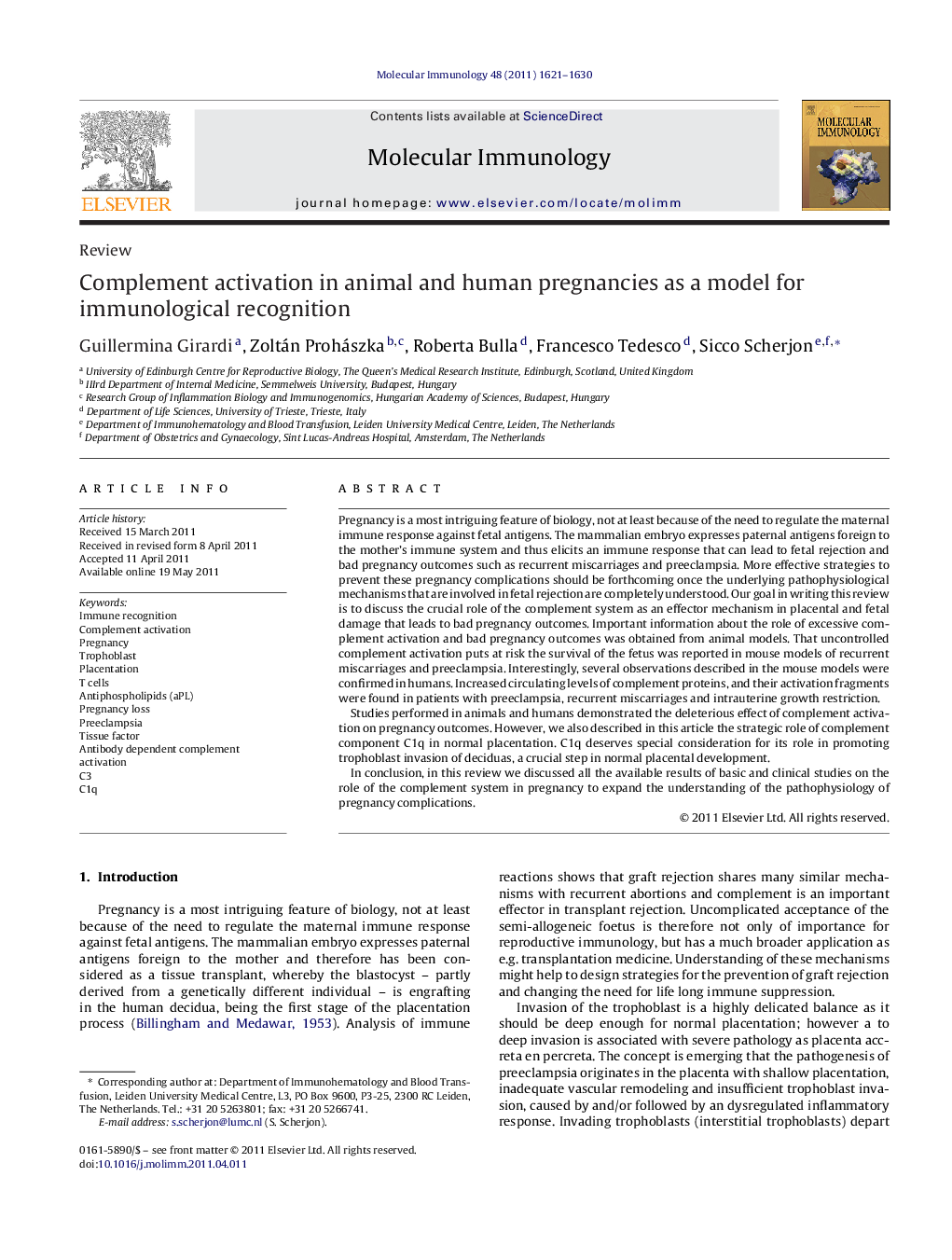| Article ID | Journal | Published Year | Pages | File Type |
|---|---|---|---|---|
| 2831439 | Molecular Immunology | 2011 | 10 Pages |
Pregnancy is a most intriguing feature of biology, not at least because of the need to regulate the maternal immune response against fetal antigens. The mammalian embryo expresses paternal antigens foreign to the mother's immune system and thus elicits an immune response that can lead to fetal rejection and bad pregnancy outcomes such as recurrent miscarriages and preeclampsia. More effective strategies to prevent these pregnancy complications should be forthcoming once the underlying pathophysiological mechanisms that are involved in fetal rejection are completely understood. Our goal in writing this review is to discuss the crucial role of the complement system as an effector mechanism in placental and fetal damage that leads to bad pregnancy outcomes. Important information about the role of excessive complement activation and bad pregnancy outcomes was obtained from animal models. That uncontrolled complement activation puts at risk the survival of the fetus was reported in mouse models of recurrent miscarriages and preeclampsia. Interestingly, several observations described in the mouse models were confirmed in humans. Increased circulating levels of complement proteins, and their activation fragments were found in patients with preeclampsia, recurrent miscarriages and intrauterine growth restriction.Studies performed in animals and humans demonstrated the deleterious effect of complement activation on pregnancy outcomes. However, we also described in this article the strategic role of complement component C1q in normal placentation. C1q deserves special consideration for its role in promoting trophoblast invasion of deciduas, a crucial step in normal placental development.In conclusion, in this review we discussed all the available results of basic and clinical studies on the role of the complement system in pregnancy to expand the understanding of the pathophysiology of pregnancy complications.
► Complement component C1q is required for trophoblast migration, normal placentation and good pregnancy outcomes. ► Complement activation plays a crucial role in the pathogenesis of pregnancy complications like recurrent miscarriages and preeclampsia. ► Human studies suggest that complement split products may be biomarkers to predict pregnancy complications. ► Animal studies demonstrate that the complement system may be a good target for therapeutic interventions.
